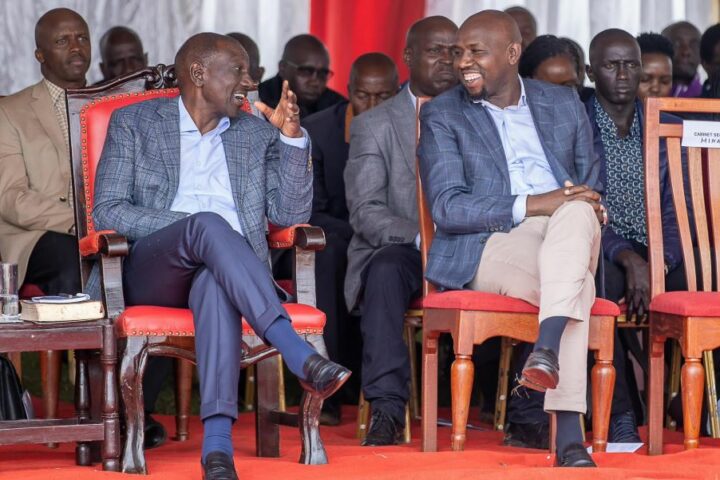By a large distance, Citizen TV is the most watched TV station in Kenya… or rather was the most watched before the switch off.
Some figures have its share at slightly over 50% of total viewers, with NTV and KTN fighting for number two with about 12% each.
K24, KBC, QTV and all the others share the rest.
It is therefore not surprising that the SK Macharia owned station gets the biggest share of advertisers’ billions.
Last year, companies spent over Sh85 billion in media advertisement, of which half went to TV.
You can see the number has been growing every year.
As expected, Safaricom was the biggest spender, despite their 2014 budget decreasing. Reckitt Benckiser was once again the second biggest spender, though the gap between them and Safaricom is quite wide.
Some of their products are ever on TV; the likes of Dettol, Harpic, Strepsils and Mortein Doom.
PS Kenya – the Trust condoms and Femiplan guys completed the top three highest spenders list in 2014.
A surprise big spender was OLX coughing out more than Sh1.3 billion last year.
Here’s a chart.
On radio, SK Macharia has over the years enjoyed the lead, but last year President Uhuru Kenyatta upped his game. Kameme FM overtook Radio Citizen as the biggest receiver of advertiser billions, with 11% of the Sh36 billion on offer.
Royal Media’s flagship radio station did not do so bad either, coming at no. 2 with 10% of the share. When you combine all of SK Macharia’s station, you can see he personally receives nearly a third of the radio advertisement money in Kenya.
Some bad news for Classic 105 and Nation FM; Advertisers prefer vernacular stations. Despite all matatus listening to Maina and King’ang’i in the morning, the real money is in the grassroots. Here’s a chart to prove it.
Back to the digital migration. Why do you think the 3 main TV stations are fighting the process so much. Well, they are trying to protect their turf. Digital migration means more options for the viewer and ultimately for the advertiser.
In 2014, the three media houses took home 85% of the advertising revenue. Everyone else shared the remaining 15%.
As highlighted in the chart above, Ebru TV and Kass TV make it to the top 10 earners, despite being solely on the digital platform.
For instance, Ebru TV took 1% of the advertising revenue when probably 10% of Kenyans were on a digital platform. What will happen when 100% of Kenyans migrate?
Not forgetting stations like Njata, 3 Stones, Property TV and others, which Kenyans have just ‘discovered’.
In this chart showing Ebru’s advertisers, you can see they are the same companies that advertise daily on Citizen and NTV.
In short, advertisers will split their budget amongst many stations, as opposed to the 3 or 4 currently.
At the end of the day, that will translate to a smaller pay cheque for SK Macharia. You can be certain that these 5000 TV ad spots Citizen has per month will either decrease exponentially or become incredibly cheap moving forward.
And from this final chart, it does not get any better for the big 3. TV stations are being opened faster than we can imagine.
All charts are courtesy of Robert Alai















